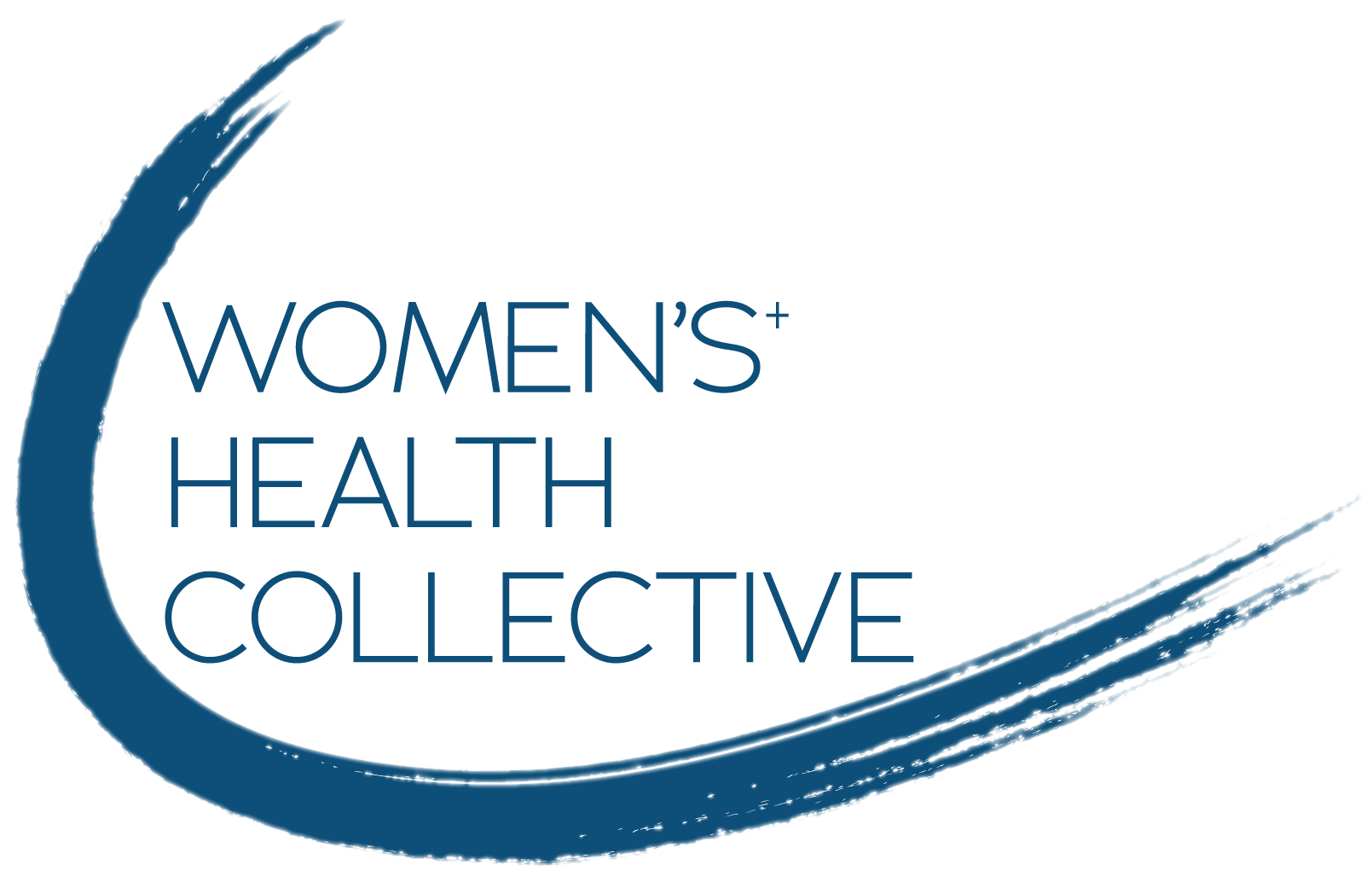Newsworthy
“I suggest just being honest about your fears. Ask any questions that have crossed your mind, we want to hear them. We can't fully help unless we know what your concerns are…We are here to have these conversations with you. All questions are valid, and it's possible we may just sit in the unknown with you, but we can transparently give you all the information we do have.”
“"We can 'fix' an organ, a body system, or a muscle group, but we must recognize that pain or a disorder may have also created a pathway in the brain that may be different from a pathway of vitality," said Nisha McKenzie, PA-C, CSC, NCMP, IF, Women's Health Collective.”
“Working in medicine, I've seen patients present with a vast array of symptoms they cannot explain—fatigue, changes in weight, gastrointestinal disturbances, changes in appetite, headaches, muscle and joint aches, an increase in irritability or a short fuse, and a general disengagement with the things…Their symptoms, however, don't often follow the typical panic attack or depressive symptoms. So, what gives?”
“Bumping uglies, knocking boots, doing the deed—we know all the sex euphemisms, but let's dive deeper. Is sex really getting you off? For many women, it's not as enjoyable as it should be. According to Women's Attributions Regarding Why They Have Difficulty Reaching Orgasm, 10 to 40% of women report difficulty or an inability to reach orgasm.”
How We Can Help When Our Patient’s Libido Hits the Brakes
“Sex is a part of life. It’s a part that can feel good, that is often considered taboo, that seems quite secretive to many; it’s only natural that kids will want to figure out what it’s all about. If you’re not the one helping them do that, they’ll likely try to piece it together themselves.”
“A new year is a natural time to reflect and think about the future. But, like Christmas, I find it somewhat superficial. Social media and advertisements are constant reminders that I should be thinking about how to reinvent myself… but then I think of those in my circle who HAVE had an influence on me. People who have shared their real-life experiences over the past year. “
"We all have questions, concerns—minor as they may feel now—about our relationships, current, past and potential," McKenzie said. "In this type of format, women are welcome to share, or just listen and learn. There is no pressure—only women supporting women."
“While bioidentical hormones—hormones produced in a lab, rather than by the body—cannot be truly identical to your body's natural hormones and—like most treatments—come with health risks, supplementing hormones are effective in treating vaginal dryness and pain.”
"Communication is key. The ability to have open, honest, mature conversation with your partner is the strongest starting point for a relationship. After this, you are both able to fully consent, knowing all information," says Nisha McKenzie, PA-C, IF, CSC.
“Libido, aka sexual desire or the urge for some afternoon delight, isn't necessarily lower during menopause. At least, it doesn't have to be—and shouldn't be. "
“Your body thanks you for all your efforts: exercising, eating clean, relaxation, mindfulness—even just taking the time to read this article! Please don’t ignore your pelvic floor. It’s far more important and affects far greater things than most of us realize.”
“We all know the days of Midol and heating pads, curled up on the couch with a bag of fritos in our “fat pants” whining about PMS and the woes of having a uterus. Imagine having all of that, but having it be constant, unrelenting, and/or recurring—even between menstrual cycles.”
“Have you considered lately what you should be doing to keep your lady parts feeling good and—most important—healthy? Nisha McKenzie PA-C, CSC, IF, Director of Center for Women's Sexual Health, shares five tips for keeping your vagina in its happy place. You may be surprised by what you're missing!”
“Embarking on the quest of self-care can seem like adding another daunting task to our never-ending to-do lists. Let this be our reminder that we only have this one life and this one body, so let’s accept that we are worthy of the same time and attention we likely give to those around us.”
In part 1 of this 2-part episode, Nisha McKenzie, speaks about the different types and stages of endometriosis, the disruptions to daily life caused by endometriosis, and what health care providers need to know about managing patients with endometriosis.
“WHC offers services to help women at all stages of life and health to feel sexually empowered, from women recovering from cancer, experiencing vaginal pain upon penetration or struggling with arousal — all issues that may be not discussed in the typical OBGYN setting.”
“I also began to recognize how women are left behind in medicine and in research, how the signs and symptoms we are taught to look for are the typical signs and symptoms we should see with the male version of the disease.”
“We get it! Talking about spicing things up isn't always a natural conversation to have. However, communication (especially in this realm) is absolutely necessary.”
“Women's Health Collective Affiliate Clinical Professor Nisha McKenzie joins TMS to discuss her new practice offering the community care that is both compassionate and evidence based, offering medical care in a way that makes people want to heal.”
“Many women don’t realize what they experience, while common, is treatable. There are several factors that influence vaginal health, and these change throughout the lifespan. Much like metabolism, the vagina of a 17-year-old doesn’t work quite the same as the vagina of someone who is post-menopausal.“
“While everyone experiences perimenopause a little differently, there are some classic symptoms. Hot flashes, night sweats, mood swings, and a decrease in sex drive due to vaginal dryness are a few, notes Nisha McKenzie PA-C, an AASECT Certified Sexuality Counselor at Grand Rapids OB/GYN”
“Raging hormones. Bloating. Cramps that make your uterus feel like is falling out ... If periods are a natural part of life, could we at least agree that nature is criminal? From the first period of preteen puberty to the final pause of menopause—and every embarrassing leak, stain and story in between—what exactly is going on? And when do you know if something is wrong?”
“I wish I knew the importance one voice could carry. Feeling small in this big world does no one any good. I have had the privilege of seeing and hearing the ripple effects my voice can create. “I’m just a PA” doesn’t cut it any more. My training and my practice has helped me realize I’m more than that and I can help women in ways I never imagined possible in the early years of my career.”
“A six-inch abdominal incision, hormones for untimely menopause, a four-day hospital stay and an eight-week recovery. With a history of hysterectomies like that, no woman wants to hear she needs one. The hysterectomy of today, however, isn't your mother's hysterectomy of 20 or more years ago.”
“…many have criticized both the FDA as well as supporters saying female sexual medicine is over-medicalized. While from a specific lens, this may ring somewhat true, here’s the problem with this theory. It implies that rather than having a medical issue contributing to sexuality, female sexual issues must be entirely psychological, or perhaps social, or even worse, that they just don’t matter.”
“Do you have pain "down there?" Ugh. Is there anything worse? Not only does the location leave little to be desired, but who the heck can you talk to about it? According to a review published in Pain Physician in 2014, anywhere from 5.7 percent to 26.6 percent of women suffer from chronic pelvic pain. “
“For years, monthly breast self-exams (BSEs) were touted as paramount to early breast cancer detection. So, why aren't we hearing much about them anymore?”
“We at Grand Rapids OB/GYN are thrilled to share the announcement made by the FDA in August that the first medication for Female Hypoactive Sexual Desire Disorder (HSDD) has been approved!…First of all, while this medication has been called the "Female Viagra," it's important to know that it is nothing like Viagra.”
“What is normal? What is healthy? Should I be concerned? According to the Mayo Clinic, persistent, recurrent problems with sexual response, desire, or orgasm—that distress you or strain your relationship with your partner—is recognized medically as female sexual dysfunction.”
“It's the "S" word. The word we all think about, but few of us dare talk about. So many reasons exist for this, both socially and culturally. But when we really get down to it, what's stopping us? Regardless of the number or type of relationships we choose, there tends to be a fundamental need to involve sex in some way. So why are we afraid to bring it up?”




































“In Grand Rapids, there’s a new women-owned, women-run group known as the Women’s Health Collective and they’re doing things a lot different from others.”